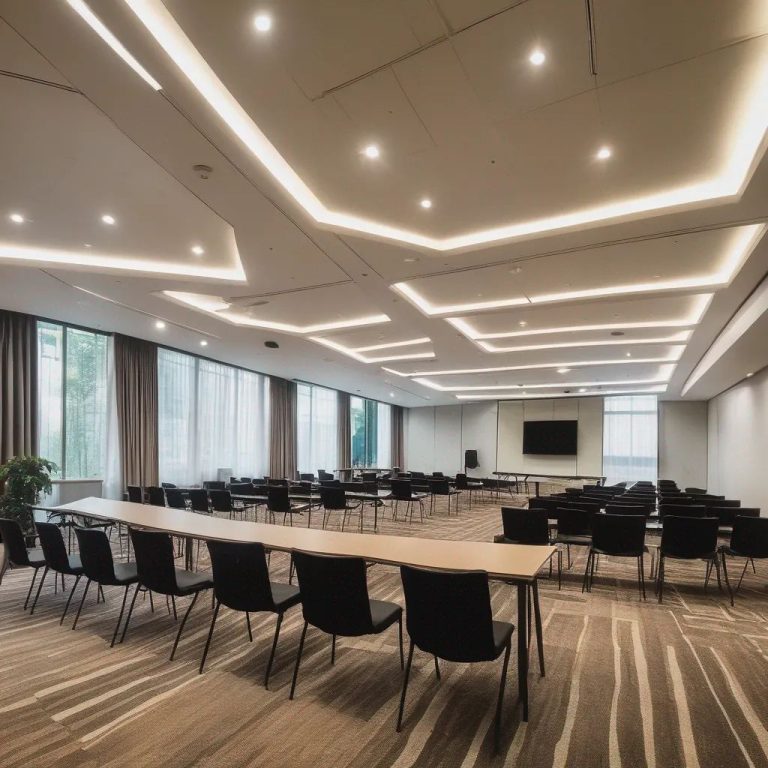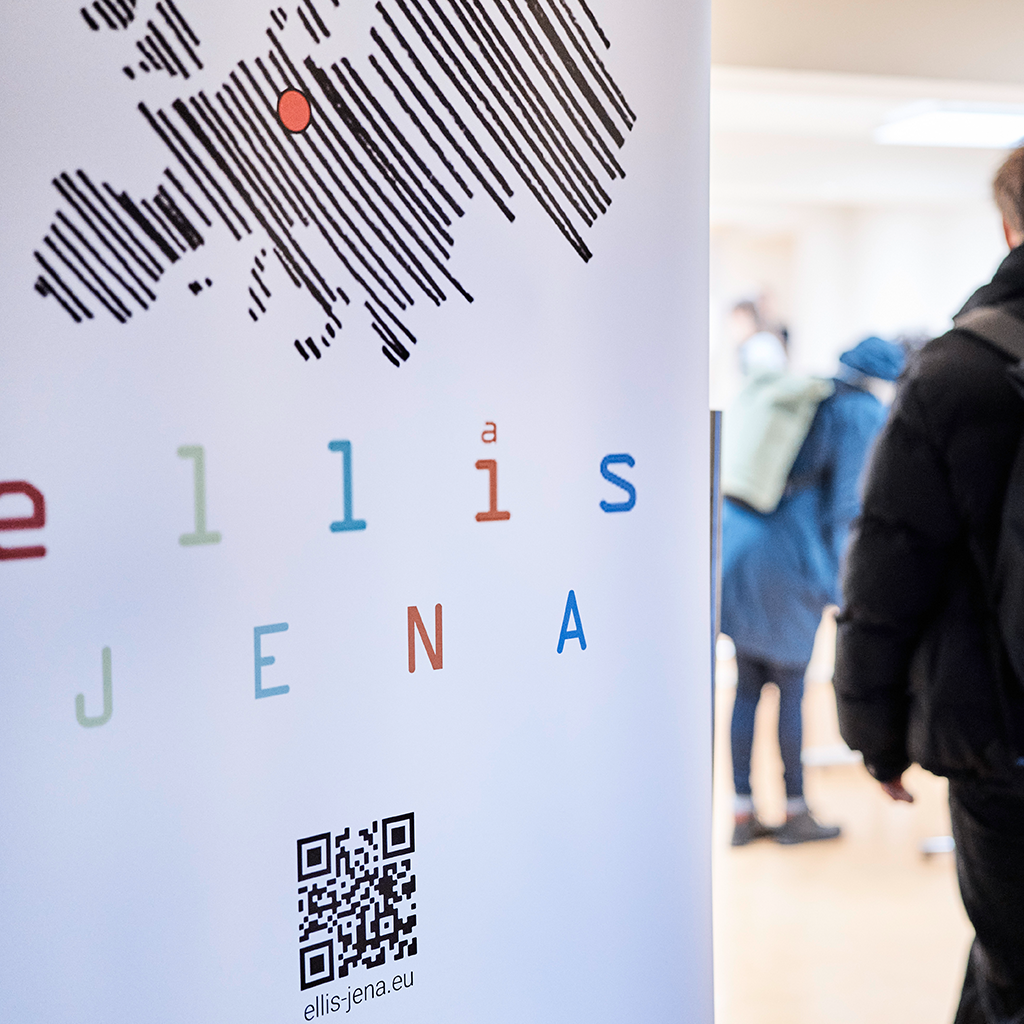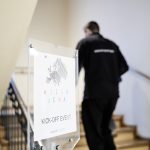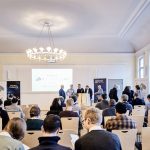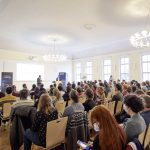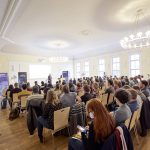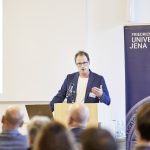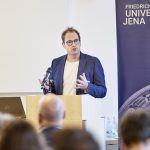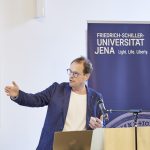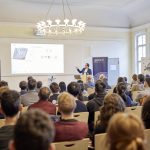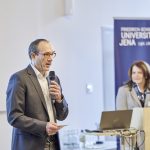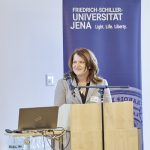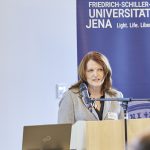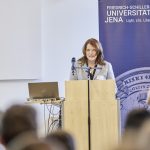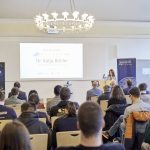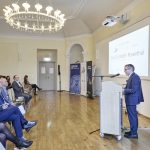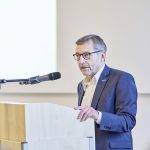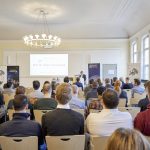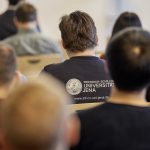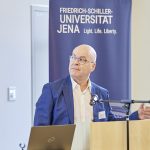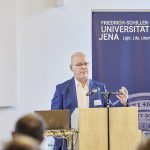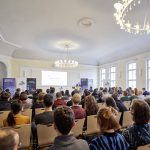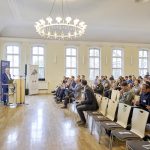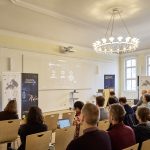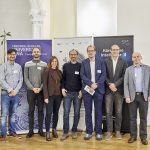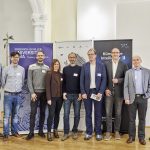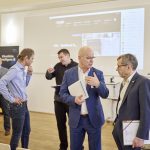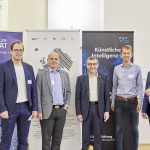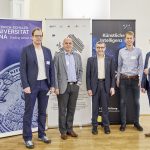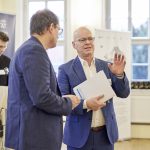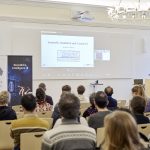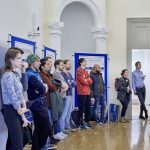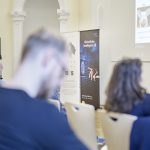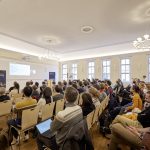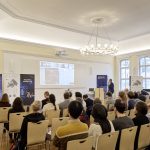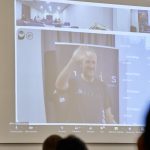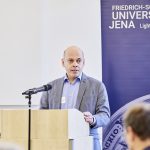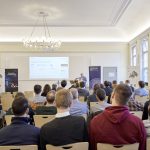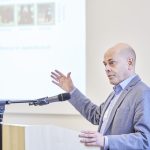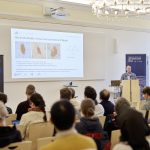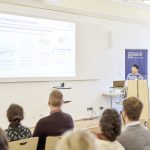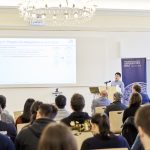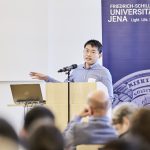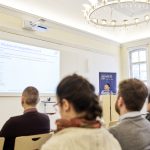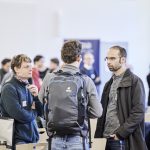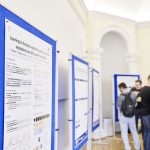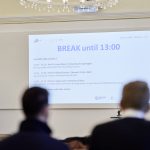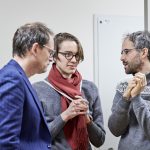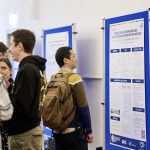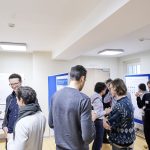
ELLIS Unit Jena KICK-OFF | JANUARY 12, 2023
PROGRAM
8:45 – 9:15 | Arrival at Rosensäle Jena (Fürstengraben 27, 07743 Jena)
Moderator
Prof. Dr. Alexander Brenning | Friedrich Schiller University Jena, ELLIS Unit Jena Member
9:15 – 9:20 | Welcome notes
Dr. Conrad Philipp
ELLIS Unit Jena Coordinator
9:20 – 9:30 | Welcome address
Prof. Dr. Markus Reichstein
Director of the Max Planck Institute for Biogeochemistry, ELLIS Unit Jena Director
Welcome & Introduction, or: Why are we here?
9:30 – 9:50 | Welcome speeches
Dr. Katja Böhler
Thuringia’s State Secretary for Research, Innovation and Economic Development
Prof. Dr. Walter Rosenthal
President of the Friedrich Schiller University Jena
Peter Höhne
General Manager of the Chamber of Commerce and Industry East Thuringia
9:50 – 10:00 | Webinar launch at Unites Nations platform AI4Good
Dr. Reinhard Scholl | Unites Nations platform AI4Good at the International Telecommunication Union
Accelerating the United Nations Sustainable Development Goals
10:00 – 10:15 | Coffee Break
Moderator
Prof. Dr. Markus Reichstein | Director of the Max Planck Institute for Biogeochemistry, ELLIS Unit Jena Director
10:15 – 11:00 | Keynote speech
Prof. Dr. Bernhard Schölkopf | Director of the Max Planck Institute for Intelligent Systems, Tübingen
11:00 – 11:15 | Research direction
Prof. Dr. Joachim Denzler | Friedrich Schiller University Jena, ELLIS Unit Jena Director
Causal Inference as Driver for Understanding Spatio-Temporal Earth and Environmental Systems
11:15 – 11:45 | Future thoughts
Dr. Shijie Jiang | Helmholtz Centre for Environmental Research (UFZ), Leipzig
Knowledge Integration for Spatiotemporal Environmental Modeling
11:45 – 12:45 | Lunch break and networking
12:45 – 14:15 | Scientific talks session 1
Moderator
Dr. Nuno Carvalhais | Max Planck Institute for Biogeochemistry, ELLIS Unit Jena Member
Prof. Dr. Jonas Peters | University of Copenhagen
How causality can benefit from the ELLIS unit Jena
Prof. Dr. Ribana Roscher | Research Center Jülich
Generating the Unseen and Explaining the Seen
Prof. Dr. Jürgen Gall | University of Bonn
From Efficient 3D CNNs and Transformers to Applications in Agriculture and Wildfire Forecasting
14:15 – 15:00 | Break and Poster session
Optimization for Machine Learning
Matthias Mitterreiter and Joachim Giesen
Why Capsule Neural Networks Do Not Scale: Challenging the Dynamic Parse-Tree Assumption
Matthias Mitterreiter, Marcel Koch, Joachim Giesen and Sören Laue
Rapid landslide hazard assessment using active and transfer learning
Zhihao Wang and Alexander Brenning
Geospatial Machine Learning for Earth Surface Processes and Natural Hazards
Prof. Dr. Alexander Brenning
Causal Discovery in Non-linear Time-series using Model Invariance via Knockoff Interventions
Wasim Ahmad, Maha Shadaydeh and Joachim Denzler
Understanding the effects of plant diversity on soil temperature stability
Gideon Stein, Yuanyuan Huang, Maha Shadaydeh, Anne Ebeling, Nico Eisenhauer and Joachim Denzler
Fine-grained Recognition and Continuous Learning for Biodiversity Monitoring
Paul Bodesheim, Daphne Auer, Julia Böhlke, Dimitri Korsch, Matthias Körschens and Joachim Denzler
Investigating Neural Network Training on a Feature Level using Conditional Independence
Niklas Penzel, Christian Reimers, Paul Bodesheim and Joachim Denzler
Hybrid Modelling of Land-Atmosphere Fluxes: Inferring Leaf Stomatal Regulation of Evapotranspiration and Photosynthesis
Reda ElGhawi, Basil Kraft, Christian Reimers, Markus Reichstein, Marco Körner, Pierre Gentine and Alexander J. Winkler
Forest Disturbances Classification
Franziska Müller, Laura Häbold, Vitus Benson, Markus Reichstein and Ana Bastos
Necessary and sufficient graphical conditions for optimal adjustment sets in causal graphical models with hidden variables
Jakob Runge
Conditional Independence Testing with Heteroskedastic Data and Applications to Causal Discovery
Wiebke Günther, Urmi Ninad, Jonas Wahl and Jakob Runge
Time Series Causal Link Estimation under Hidden Confounding using Knockoff Interventions
Violeta-Teodora Trifunov, Maha Shadaydeh and Joachim Denzler
An objective estimate of water stress (- going beyond PDSI)
Wenli Zhao, Alexander J. Winkler, Markus Reichstein, Rene Orth and Pierre Gentine
Data-driven modelling of canopy greenness dynamics accounting for meteorological memory effects on vegetation phenology
Guohua Liu, Alexander J. Winkler, Christian Reimers and Mirco Migliavacca
Learning to forecast vegetation greenness at fine resolution over Africa with ConvLSTMs
Claire Robin, Christian Requena-Mesa, Vitus Benson, Lazaro Alonso, Nuno Carvalhais and Markus Reichstein
15:00 – 16:00 | Scientific talks session 2
Moderator
Dr. Paul Bodesheim | Friedrich Schiller University Jena
Dr. Georg Martius | Max Planck Institute for Intelligent Systems, Tübingen
Model-based Reinforcement Learning
Prof. Dr. Gustau Camps-Valls | University of Valencia
Gaussianizing the Earth
16:00 – 16:30 | Break and Poster session
16:30 – 18:00 | Flashlight talks
Moderator
Dr. Ana Bastos | Max Planck Institute for Biogeochemistry, ELLIS Unit Jena Member
Prof. Dr. Christian Wirth | University of Leipzig
AI for understanding biodiversity-climate feedbacks – a wish list
Dr. Fernando Iglesias-Suarez | German Aerospace Center (DLR)
Causally-informed deep learning to improve climate models and projections
Dr. Ankit Kariryaa | University of Copenhagen
Deep learning for continental scale mapping of trees and biomass
Dr. Teja Kattenborn | University of Leipzig
Tracking plant properties from local to global scales with plant photographs
Konrad Heidler | Technical University Munich
AI for cold regions
Prof. Dr. Hanna Meyer | University of Münster
Machine learning-based global maps of ecological variables and the challenge of assessing them
Francesco Martinuzzi | University of Leipzig
Learning Biosphere Response to Climate Drivers Using Echo State Observers
Prof. Dr. Richard Turner | University of Cambridge
Neural Process for Environmental Research
18:15 – 19:00 | Capstone talk
Moderator
Prof. Dr. Markus Reichstein | Director of the Max Planck Institute for Biogeochemistry, ELLIS Unit Jena Director
Prof. Dr. Yoshua Bengio | Université de Montréal
Generative Models and Experimental Design in the Fight Against Climate Change
19:00 | Closing remarks
Prof. Dr. Markus Reichstein
Director of the Max Planck Institute for Biogeochemistry, ELLIS Unit Jena Director
19:30 | Beverages & snacks at exhibition „I AM A.I. – explaining artificial intelligence“
Campus Ernst-Abbe-Platz, Foyer, Carl-Zeiß-Str. 3, 07743 Jena


